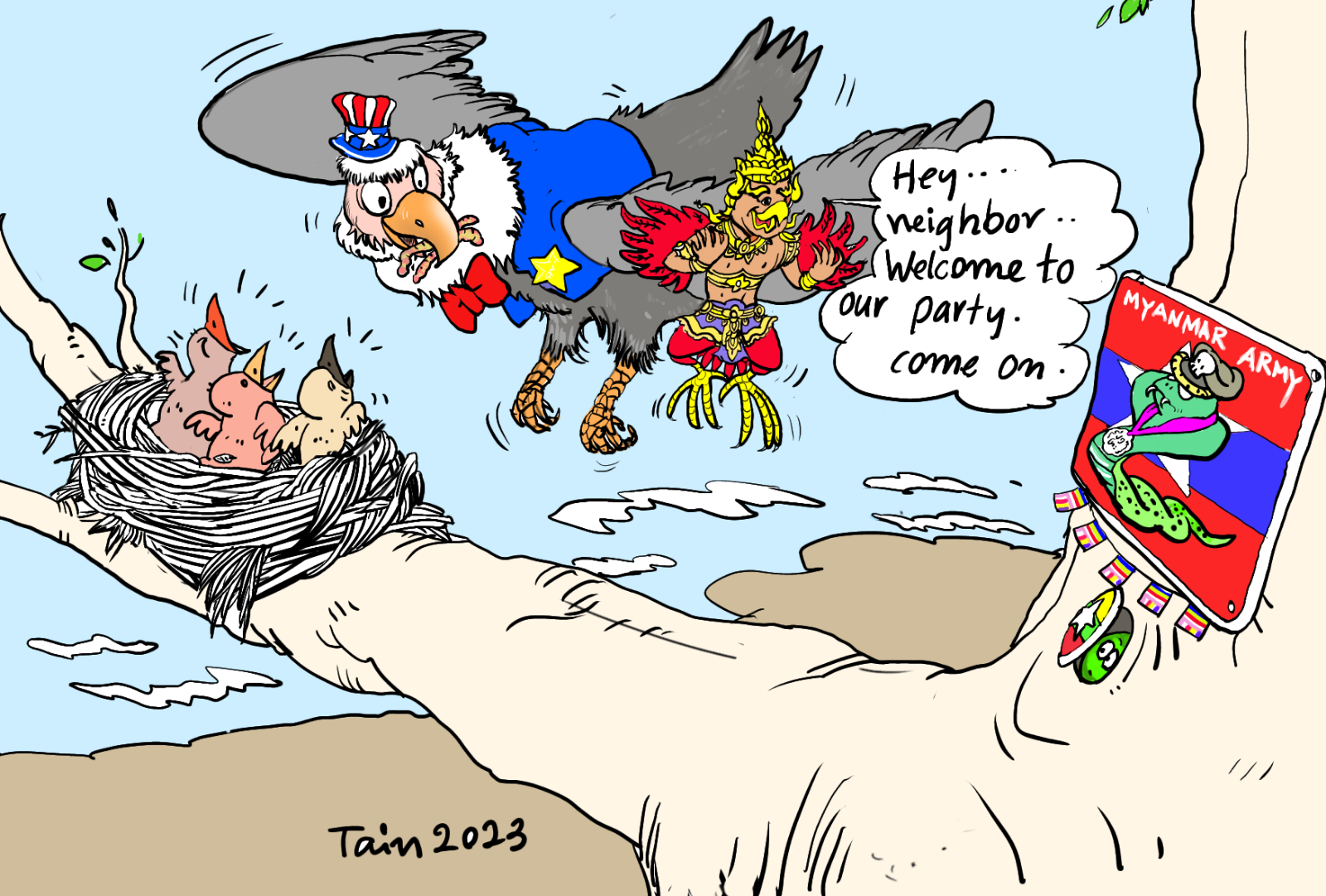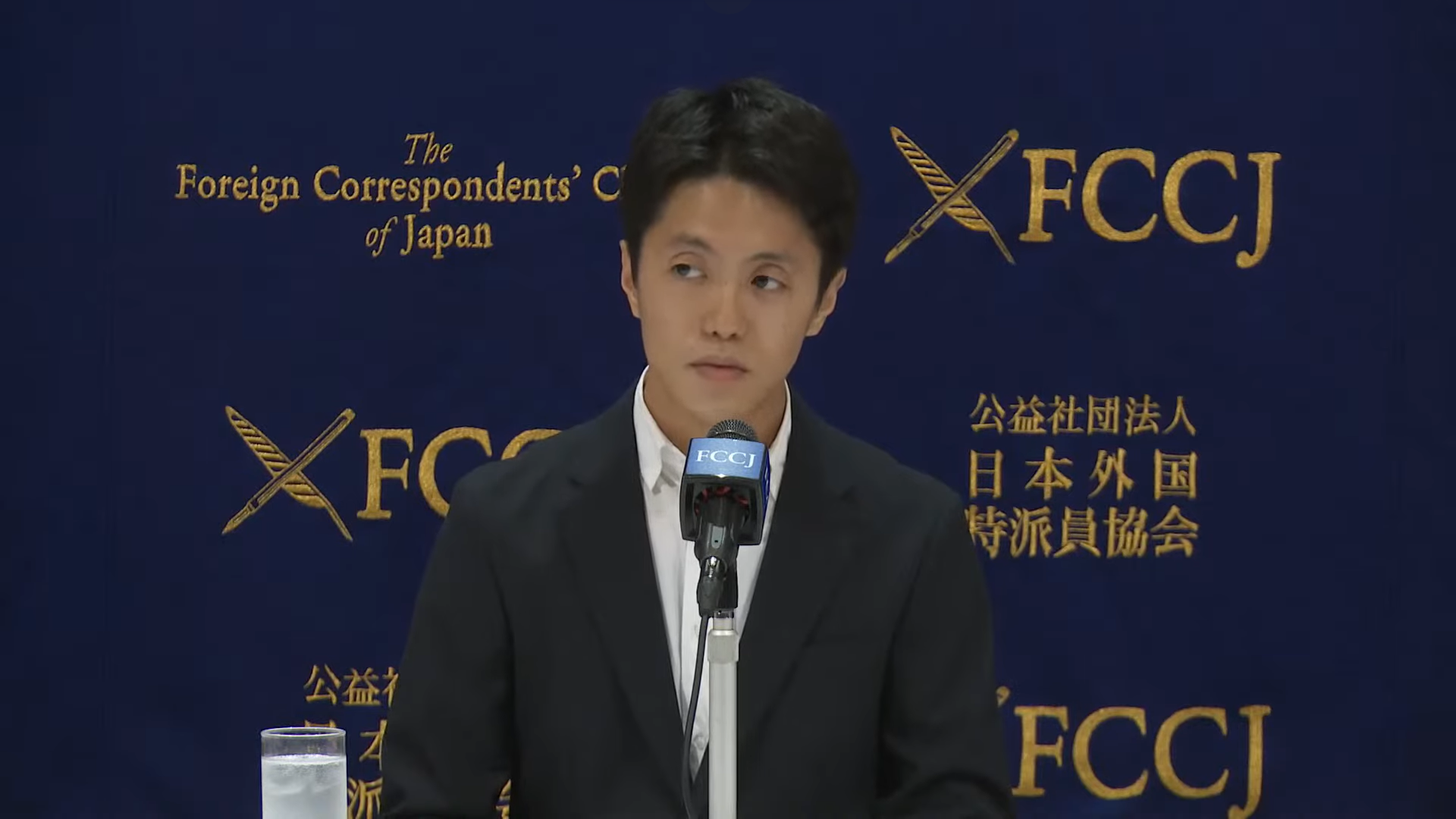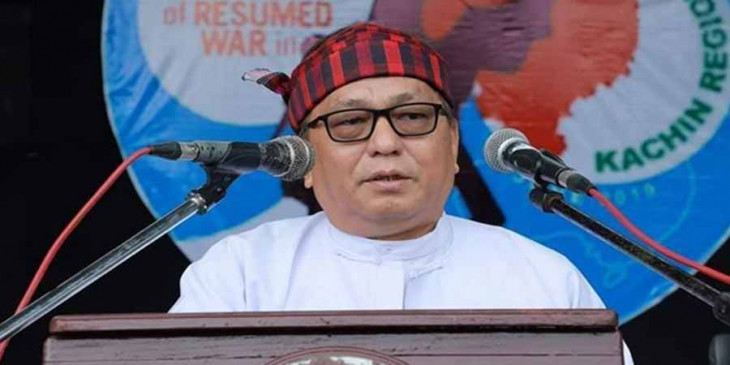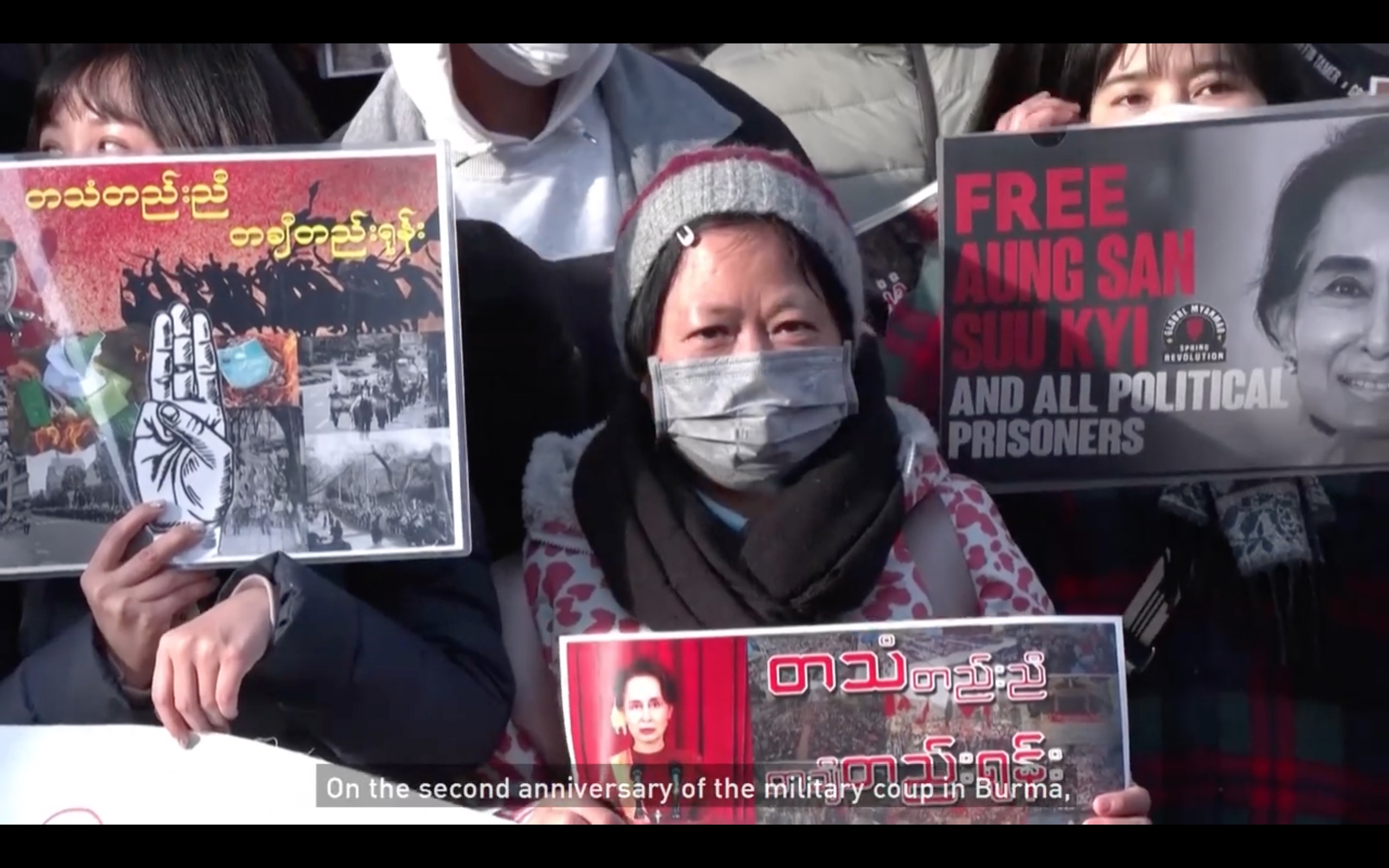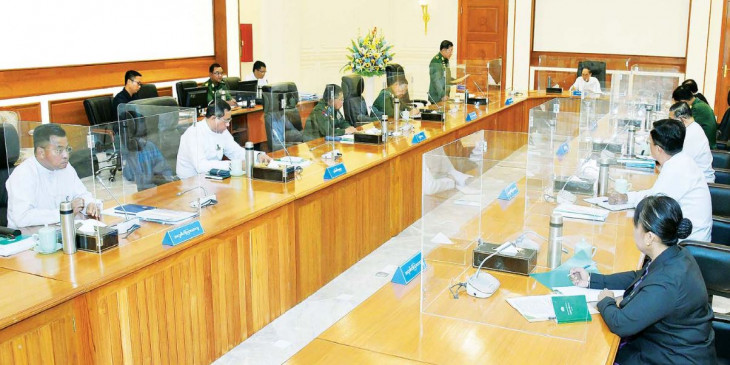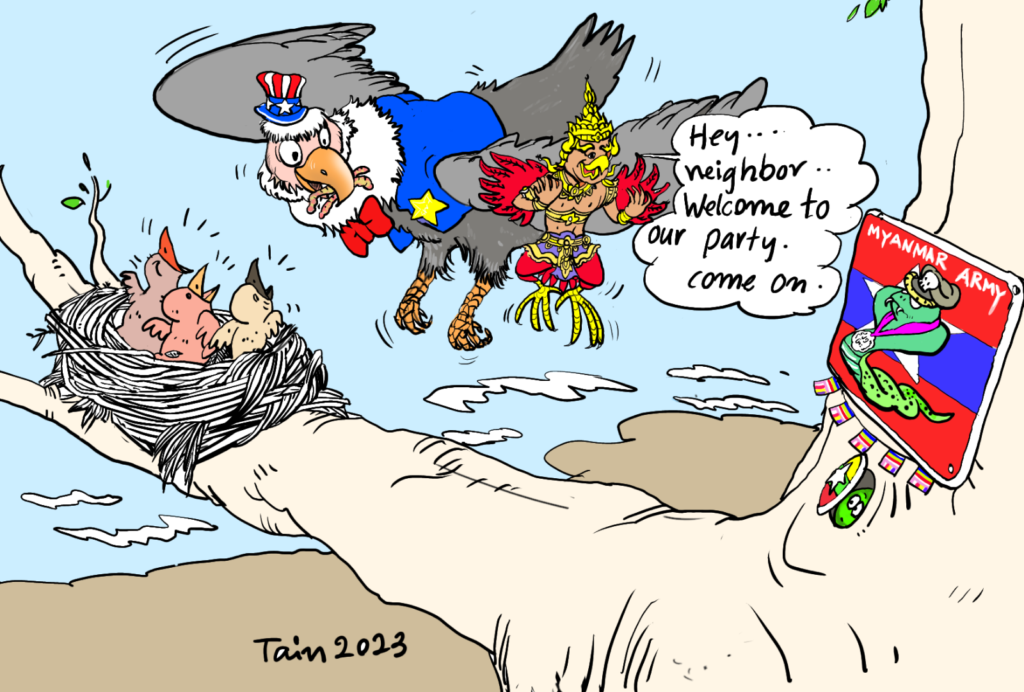
‘Docu Athan’ to highlight and support the work of filmmakers in Burma
The two Japanese journalists and documentary filmmakers jailed in Burma for reporting on the anti-coup protests in 2021-22 have launched an online platform to support filmmakers covering Burma. ‘Docu Athan’ (Athan means ‘Voice’ in English) was founded by Yuko Kitazumi and Toru Kubota. The platform will help people learn about the situation in Burma through documentary films and other types of human rights storytelling. The Japanese journalists launched ‘Docu Athan’ on Feb. 1 to mark the second year since the coup. People can support filmmakers and storytellers in Burma with donations, the Jiji Press reported.
Podcast: DVB Peace Documentary 2022 Award Winner ‘Creatio’ on his film “X, Y, Z and then A”
DVB Peace Documentary 2022 Award Winner ‘Creatio’ speaks about his short film “X, Y, Z and then A.” It documents the Karenni people and their generations-long struggle for regional autonomy in Burma.
“My name is Creatio.
I produced the documentary film X,Y, Z and then A.
This movie tells the story of Karenni people displaced by conflict.
I traveled to Karenni State in 2018 and 2019.
Since then, I’ve learned alot about the Karenni people.
They have been suffering from Burma’s civil war, from generation to generation.
After the 2021 military coup, a huge number of people were displaced.
I think everyone should hear their stories.
That’s why I produced this documentary.
When anti-coup protests began, people started calling on Generation Z.
And then Generation Alpha are those who come after.
That’s how I got the idea for the name Generation X, Y, Z and then A.
Each new generation of the Karenni people have to face a never-ending conflict.
I interviewed refugees in Ban Mai Naing Soi refugee camp on the Thai-Burma border.
My main character, he arrived at the camp with his adopted parents in 1996.
He was only six years old when he arrived at the camp. And now, he has nieces and nephews.
I am very happy that I received the permission to document his story.
At first, I didn’t think it would win the award from DVB. I am really excited to receive it.
But this kind of happiness is complicated.
It’s like we are all in this bad situation but something good happened.
And still, we don’t know how to get out of this situation.
It’s great that the audience knows this story now. I am happy about that.
The main reason I did this story is that I want more people to know about what’s happening.
I would like to make it into a feature documentary, about 50 minutes long.
Because I would like to document each generation of his family.
A 15 minute film is a very short documentary.
When I edited it was very difficult for me to cut parts.
I wanted to show more emotion and how they have been suffering.
But I can only show 10 percent of this.
That’s why I want to produce a longer documentary with more details.
The DVB peace documentary I made is only 15 minutes long.
But I will be editing a longer version to submit to film festivals.
I will try to screen this film all over the world.
Right now, I am looking for a producer to help me with my documentaries.”
DVB English Podcasts are on-demand via Facebook, Twitter, YouTube, TikTok, Instagram, Substack, SoundCloud, Stitcher, Spotify, TuneIn Radio, Anchor FM, Audible, Amazon Music, Apple & Google Podcasts: link.chtbl.com/dvbenglish
Military junta to charge Hkalam Samson under Counter-Terrorism Law
The military junta plans to press additional charges against Hkalam Samson under Section 52 (A) of the Counter-Terrorism Law. The former chairperson of the Kachin Baptist Convention (KBC) is being detained at Myitkyina Prison, according to a spokesperson with the Kachin Baptist Churches-USA. Hkalam Samson was detained at Mandalay airport on Dec. 5, 2022 and forced to return to Myitkyina where he was charged under Section 17 (1) of the Unlawful Association Act and Section 505 (A) of the Penal Code for incitement. Samson appeared in a military court on Jan. 11 at Myitkyina Prison. His second court appearance, set for Feb. 2, was postponed to Feb. 14. “His health is fine. But he is not allowed to meet with his family,” said the KBC-USA spokesperson.
DVB Reports: Japan Solidarity Rallies Support ‘Silent Strike’ in Burma
Burmese living in Japan, and Japanese, held rallies across the country on Feb. 1, 2023 to support the democratic forces and anti-coup resistance in Burma. They called on the Japanese government and the international community to stop legitimizing the military and force it to return to the country to democracy by releasing the country’s elected leaders jailed since the 2021 coup. Japan’s leaders called on the military to abide by the ASEAN Five-Point Consensus and officials met with the National Unity Government (NUG) in Tokyo.
DVB English – https://english.dvb.no
Facebook – https://bit.ly/3PhmElC
Twitter – https://twitter.com/dvb_english
Instagram – https://www.instagram.com/dvbenglish
TikTok – https://www.tiktok.com/@dvbenglish
YouTube – https://www.youtube.com/@dvbenglish
Soundcloud – https://soundcloud.com/dvbenglish
Anchor – https://anchor.fm/dvbenglish
Podcast – https://link.chtbl.com/dvbenglish
Substack – https://dvbenglish.substack.com
Subscribe to the Daily Briefing: [email protected]
DVB TV News – https://youtube.com/dvbtvnews https://t.me/dvbtvnews
About DVB
The DVB (Democratic Voice of Burma) is a non-profit Burmese media organization committed to independent and responsible journalism. The DVB Foundation is registered in Oslo, Norway since 1992.
Military junta declares martial law in 37 townships across Burma
The military junta declared martial law in 37 townships, where fighting between the Burma Army and resistance forces has intensified, across Burma on Feb. 2. The martial law was imposed in two townships of Tanintharyi Region, five townships of Bago Region, Ye Township of Mon State, Kyainseikgyi and Kawkareik townships in Karen State. Also included are four townships of Karenni State, five townships of Magway Region, ten townships of Sagaing Region and seven townships in Chin State. The martial law declaration was made one day after the junta extended its state of emergency for another six months. The junta also reshuffled its military cabinet with its stated aim of achieving a ‘modern and disciplined nation’.
The military junta imposed martial law following its coup in 2021 on 11 townships in Mandalay and Yangon Regions after its violent crackdown on anti-coup protesters demanding the military release all elected MPs and allow parliament to resume. Under martial law, all power of the judiciary is transferred to the military coup leader Min Aung Hlaing and his commanders. At the National Defense and Security Council (NDSC) meeting on Jan. 31, Min Aung Hlaing said that only 198 out of 330 townships in Burma are currently “stable and peaceful.” He added that ‘the country is still in an abnormal position’ and needed to extend its state of emergency another six months according to the Article 425 of Burma’s 2008 military-drafted Constitution.


